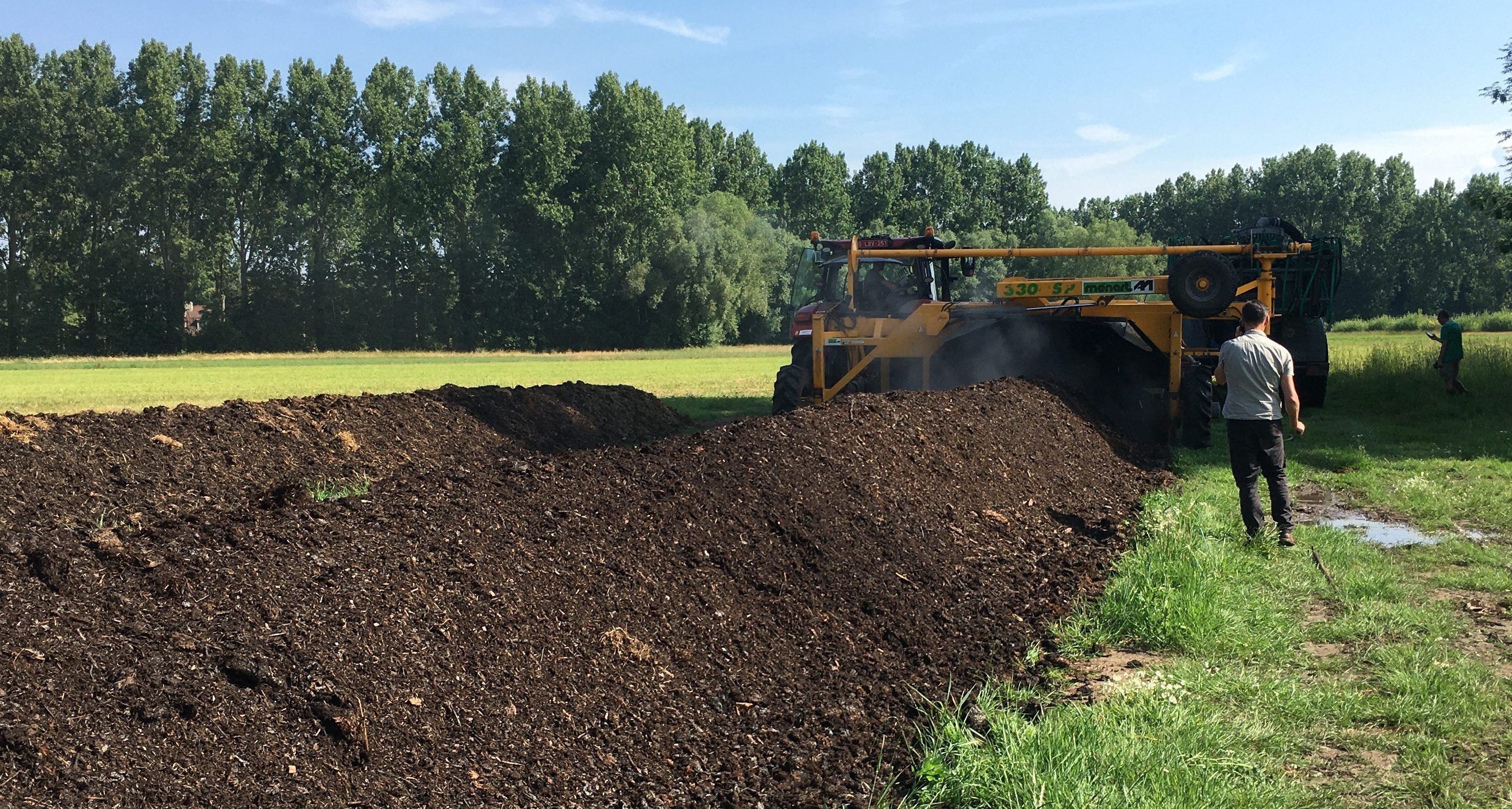On-farm composting
Applying compost on the field is an important tool to improve overall soil quality. Preparing compost from on-farm residual flows reduces the need for other, externally supplied fertilizers. Moreover, by composting local residual flows, nutrients and organic matter are recirculated in a sustainable way.
The Flemish environmental and fertilization regulations have adopted the concept of collaborative on-farm composting. No single farmer has to have all green and woody materials available for a balanced composition of the on-farm compost piles. Three farmers can partner up. Nature management organizations can also get a "farming" business number so that their management residues can also be involved in an on-farm composting initiative. The compost can be used on fields of the farm where it is produced and on fields of one or two farms with whom the farmer partners for composting.

At PHAE, a first collaborative on-farm composting case was carried out, with residues from a local nature reserve, straw manure from dairy farms with whome PHAE partners for forage production, and the farm's own residual flows.